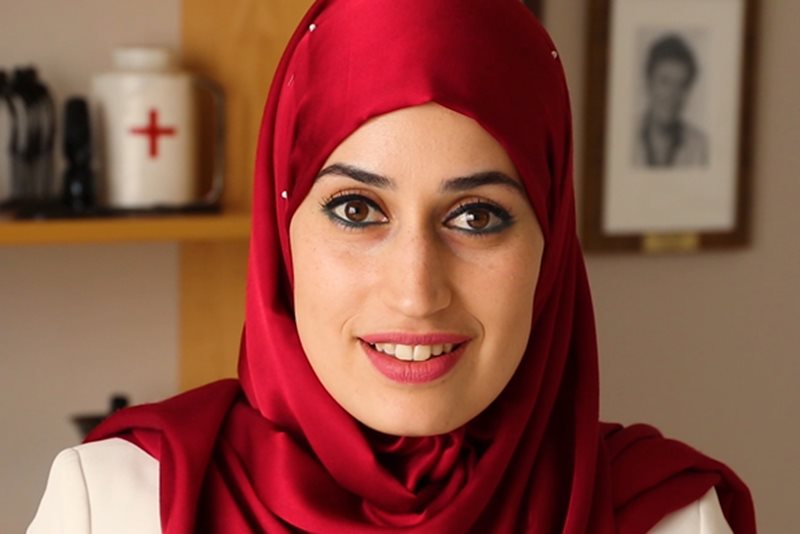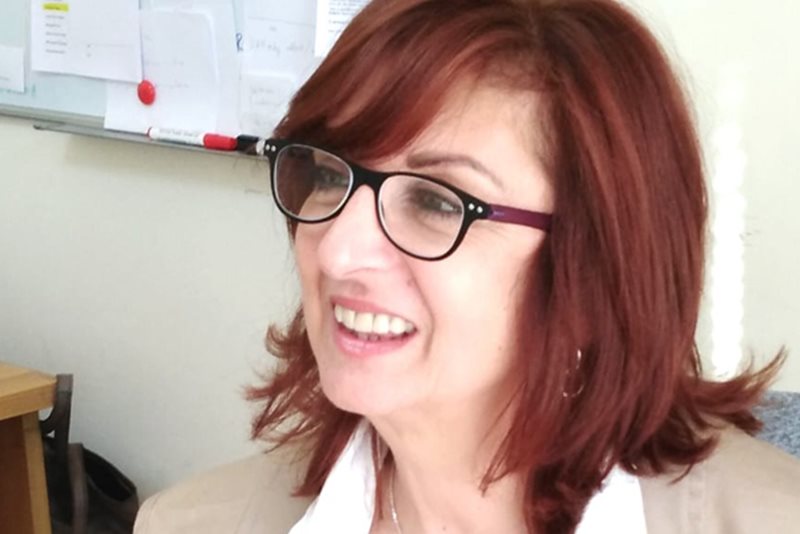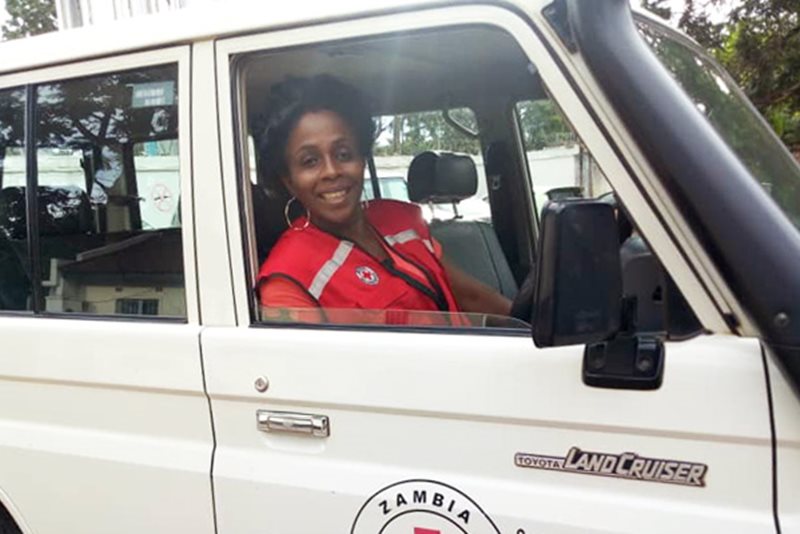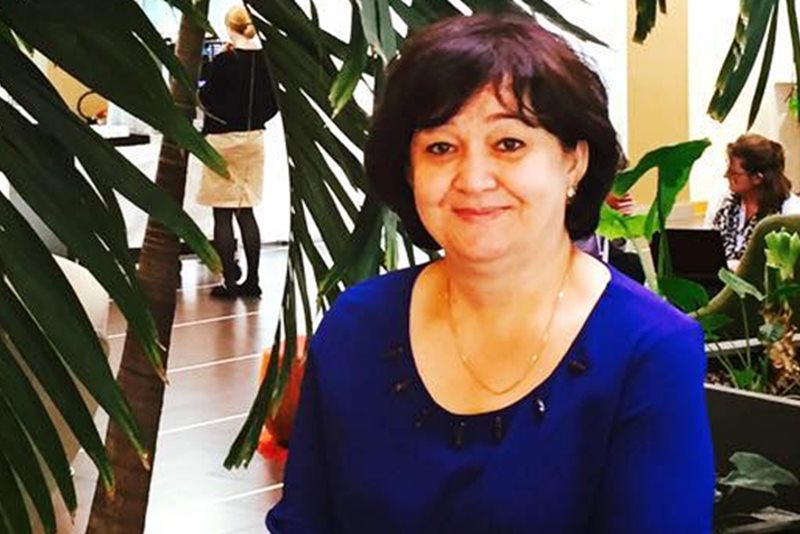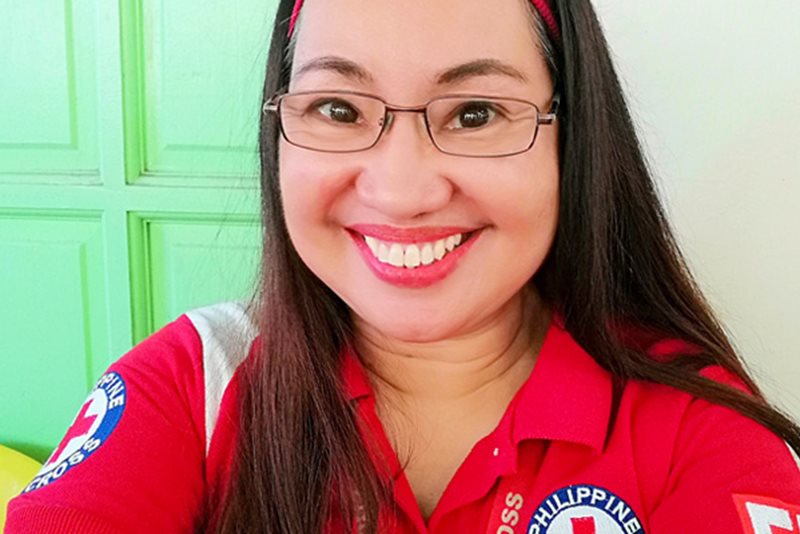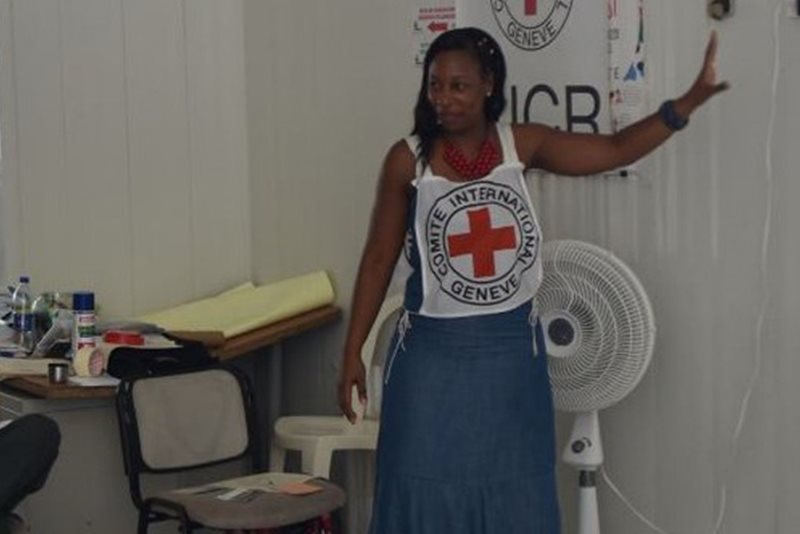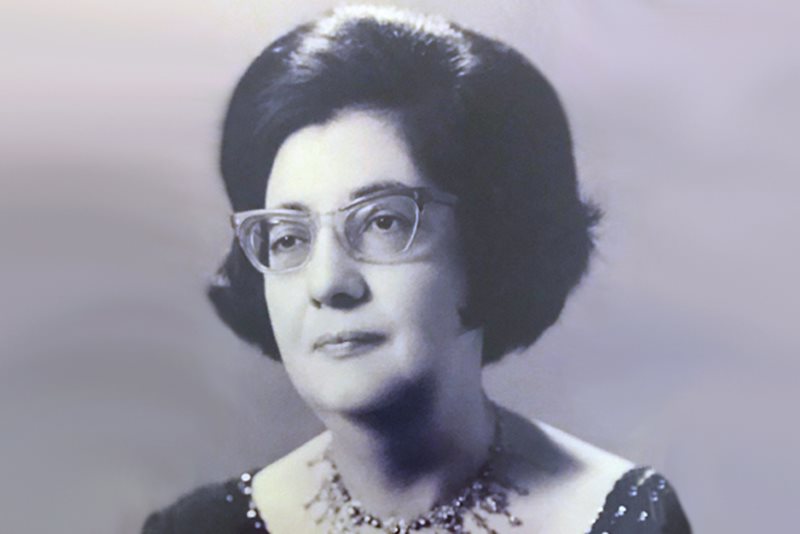

“I worked for 5 years in about 20 different countries in Africa. Each country had a National Red Cross or Red Crescent Society that was unique, and I always felt that there was a lot to learn from the different experiences. During my first deployment, in Uganda, I was the only one from IFRC in country at the time and the only woman in the team. This taught me a lot and has helped me progress in my career. I had to work hard to gain the team’s respect and establish mutual trust.”
– Anna Cerutti, IFRC“You have to remind yourself that you are not less worthy because you needed the support of someone else”
“I hope that I have always been and will always be selected for my skills and not for my gender. I do the same when I am recruiting; I look at skills and I ask what the added value of this person would be to the operation. Technical skills can be learned depending on the person’s attitude and willingness to learn. I have learned that you have to trust people and listen a lot. You have to pick your battles and you have to admit when you need the help of others. You have to remind yourself that you are not less worthy because you needed the support of someone else. Another thing I learned is to ask for help from specific people and to recognise the added value of everyone regardless of gender. In some cultures, it is important that the person on the frontline interacting with the communities is a man.
I think it is very important to think of quality and merit rather than just including women. I always think, especially here in the context of Poland where we have gender parity, that it is good to have a balanced team because everyone brings different skills, experiences and views. However, the experience for men and women can be very different especially at the beginning of their careers when you have to prove that you can do the job, so you devote yourself to your job and forget about your personal life. We do not always have stability in terms of where we work, so it really is important to remind yourself that you need to keep a balance between your personal and professional life. I do not know whether this is something that only women struggle with or something that men struggle with as well. I have the impression that it is much more of a woman’s struggle, and it could be because of the roles we play in our homes as caregivers. I think not having stability in our line of work affects women more than men in the long run. IFRC has a positive approach in terms of the policies for the inclusion of women and men. I think there has been a lot of improvement and I think the women we have in leadership positions deserve to be there because they were selected based on their merits and capabilities.
My approach has always been to remind myself that I do not need to prove anything because I know I am doing the job. I have not faced any personal challenges, but I remember a colleague who was a single mother and who decided to resign because she could not cope with the workload. Thinking about this colleague, I know she had to resign because the organisation did not support her to advance in her career as a single mother.”
– Anna Cerutti, IFRC“Women in a team act as glue”
“One thing I realised about women in a team is that they act as glue, they bring together different women with different personalities and skills and work together as one. This is something that women are really good at. For example, if women were organising an after-work team gathering, they would try to ask people for a suitable time to ensure that everyone is included. However, a man might just suggest a place and invite anyone who has the time to join him. In my experience, women have more of this sensitivity in trying to include everyone.
The initiative of having women inspire more women is a great one. I am now part of the IFRC EOPS programme where we are developing the Emergency Heads of Operations, and we have a sub-group which is the SHEOPS. The SHEOPS consists of women only who are there to develop women heads of emergency operations. We, the women, have meetings where we talk about everything from challenges regarding inclusion in after-work activities to not being heard in meetings. One way to improve the inclusion of women is to have this type of network available for women where women can give each other advice and support and feedback whenever this is needed. Having this feedback allows you to grow and it is very important for building confidence when women share experiences that are similar so they do not feel alone, and they tell each other what they learned and what worked and what the other women can do. It is better when this advice is from a woman than from a man.
I dream of growing in my professional career while keeping my feet on the ground and keeping the reason why I joined the Movement on my mind. It is easy sometimes as we advance in our careers to forget the reason why we joined the Movement. I would also like to continue to inspire people.”

Research shows that gender diverse managerial teams are related to positive performance outcomes.



